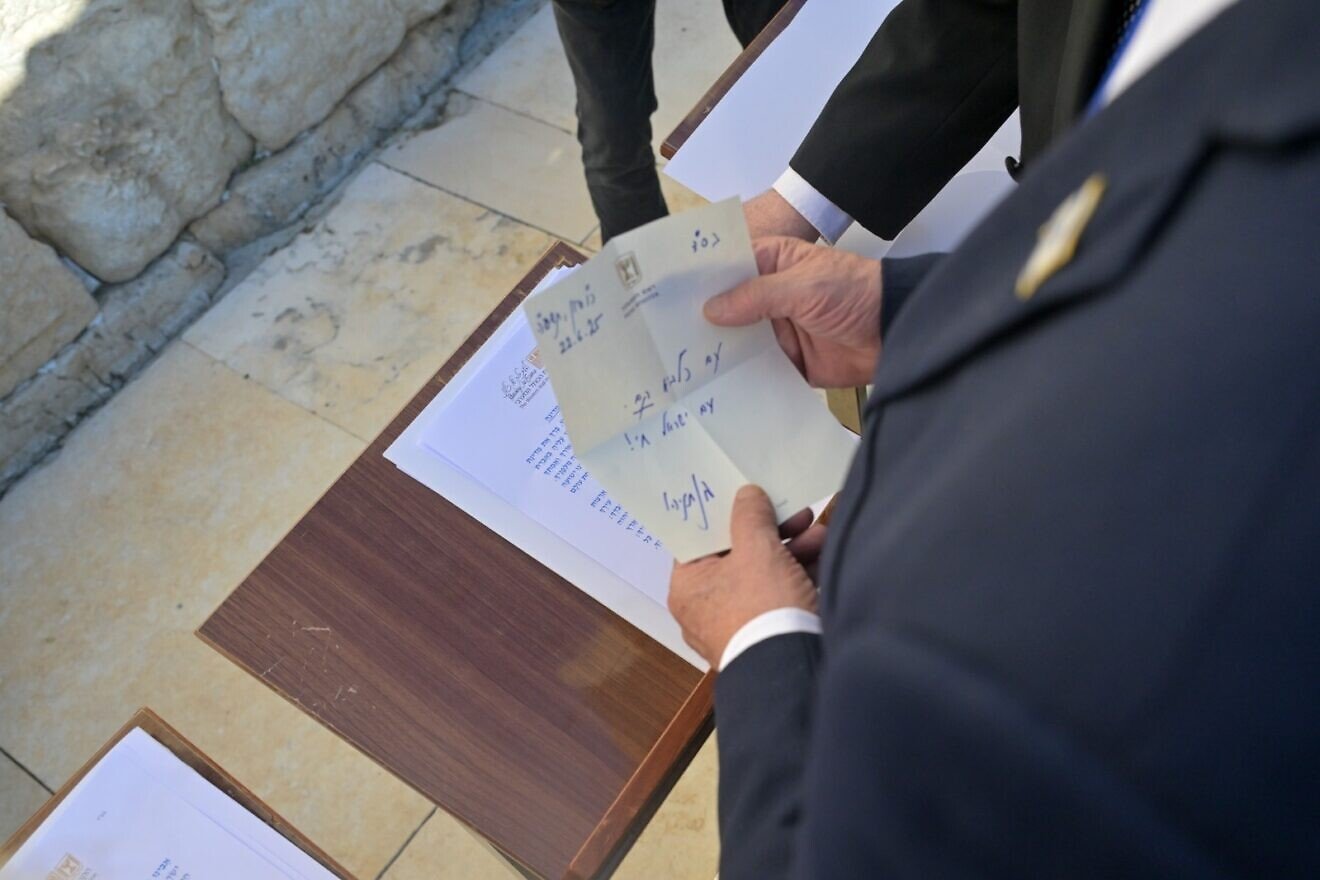From mourning to ‘Tkuma’
For the first time in decades, a realignment in the Middle East may be possible, based on a shared understanding that the Khamenei era must end.
By Fiamma Nirenstein
JNS
Jun 23, 2025

A year after the horrors of Oct. 7, 2023—when 1,200 Israelis were brutally murdered and 252 taken hostage by Hamas—Israeli Prime Minister Benjamin Netanyahu declared a new phase in the war.
He said the operation known as “Swords of Iron” now bears a far older, deeper name: “The War of Tkuma.” In Hebrew, tkuma means resurrection—a word rooted in Jewish memory, struggle and renewal.
This wasn’t just a rebranding. It was a signal.
With the symbolic conclusion of shiva—the seven-day Jewish mourning period—Netanyahu emerged from the shadow of grief, ready to reclaim leadership not only of a nation under fire, but of a people called once again to rise from ashes.
And rise they did.
In a moment pregnant with meaning, Netanyahu on Sunday placed a note into a crevice of the Western Wall—the second such message in 10 days—shortly after a U.S. strike targeted Iran’s nuclear infrastructure. The note read: “A people has risen up as a lion—Am Yisrael Chai!”
Netanyahu also said a special prayer for U.S. President Donald Trump: “May the President of the United States be exalted for assuming the responsibility of expelling evil and darkness from the world.” It was not just a prayer. It was history in motion.
The attack was surgical. The United States deployed its stealth B-2 bombers, dropping 162 tons of ordnance on Iran’s Fordow enrichment facility. Simultaneously, Israeli forces struck and dismantled key elements of the regime’s nuclear furnace. In that moment, a photograph captured Netanyahu on the phone with Trump, watching history shift on a seismic scale.
This wasn’t only a military triumph. As Israeli commentator Hagai Segal put it, it was perhaps the most significant diplomatic victory since David Ben-Gurion secured the U.N. vote for Israeli statehood in 1947.
The path to this moment was long and winding. For years, Netanyahu had warned that Iran’s nuclear ambitions were not just an Israeli concern—they were a threat to the free world. But American leadership often hesitated. Four successive presidents offered varying shades of appeasement, “red lines,” and “don’ts.”
Until Trump.
Together, Trump and Netanyahu forged a doctrine: Iran must never possess a nuclear weapon. When the Biden administration returned to hedging and hesitation, Oct. 7 shattered the illusion. The massacre by Hamas was no isolated flare-up—it was a link in Iran’s genocidal chain, a campaign to destroy Israel fueled by fanatical ideology, not unlike the Nazi vision of Jewish extermination.
Netanyahu, ever the student of history and son of the great historian Professor Benzion Netanyahu, understood what was required: to break free of the illusions that even he had once entertained during the Oslo era and his Bar-Ilan speech. The new reality demanded a return to primary principles: fight to survive, destroy the danger and rise in spirit.
And ruach—that sacred Hebrew word for “spirit” and “wind”—is now on Israel’s side.
Trump, too, understood. After years of intelligence, pressure campaigns, and broken negotiations, the moment had come. Despite domestic opposition, he acted. And in doing so, he may well have sealed his own vision: not only to make America great again, but to return it to its moral compass as the guardian of liberty and the ally of those who refuse to die quietly.
Iran can now either retreat—or self-destruct.
Its proxies—Hamas, Hezbollah, the Houthis—are being dismantled one by one. The regime’s aura of invincibility is shattered. Its genocidal ambitions are exposed. And for the first time in decades, a realignment in the Middle East may be possible—one not built on illusions, but on a shared understanding that the era of Supreme Leader Ali Khamenei’s terror must end.
Some had claimed Trump abandoned Netanyahu. They were wrong. Their 60-day timeline for Iran to respond was real. Netanyahu held the line. Trump delivered.
This war, born of massacre, may yet lead to resurrection: Tkuma.
No comments:
Post a Comment